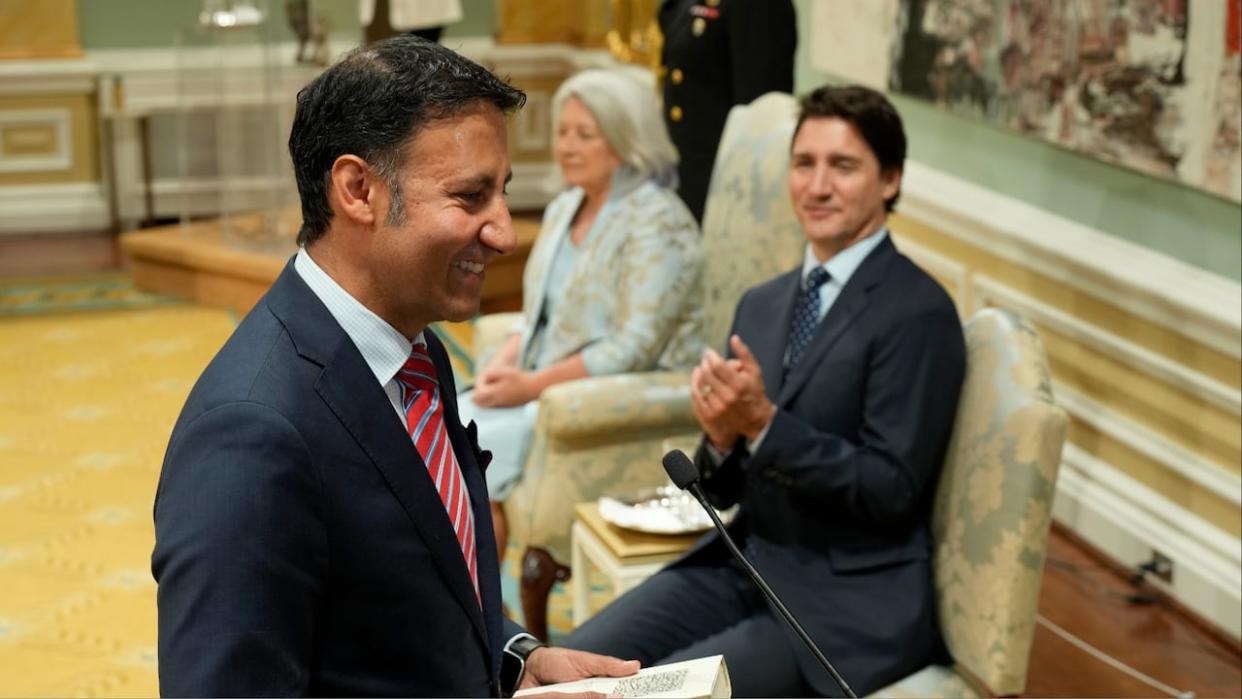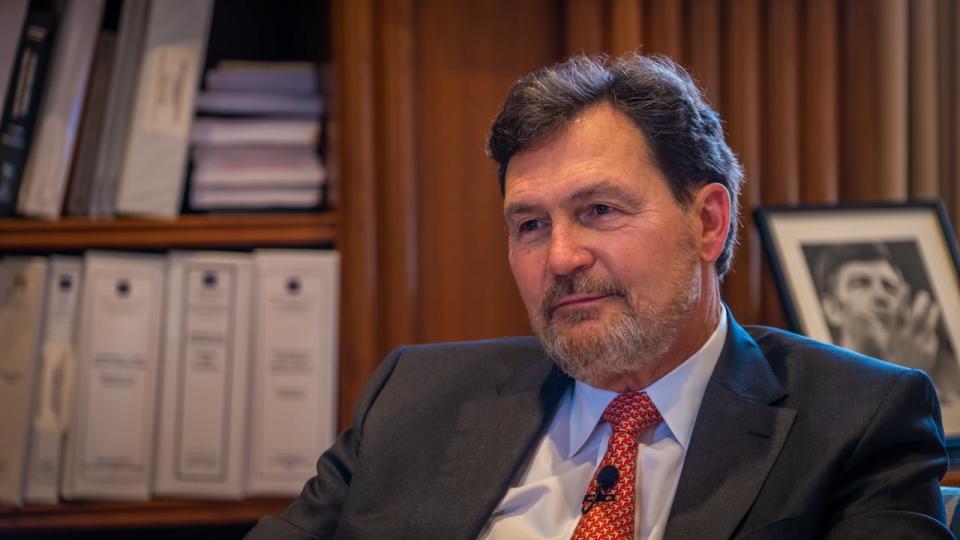Court says Trudeau, justice minister 'failed' Canadians by letting judicial vacancies build up

A scathing Federal Court decision says Prime Minister Justin Trudeau and the federal justice minister have "failed" Canadians seeking timely justice by letting the number of judicial vacancies reach a state of crisis.
The case, brought forward by human rights lawyer Yavar Hameed, sends a clear message to the federal government about the urgent need to reduce the number of vacancies.
"With the greatest respect, the Court finds the Prime Minister and Minister of Justice are simply treading water," Federal Court Justice Henry Brown wrote in his Tuesday decision.
"And with the greatest respect, they have also failed all those who rely on them for the timely exercise of their powers in relation to filling these vacancies. Also failed are all those who have unsuccessfully sought timely justice in the Superior Courts and Federal Courts across Canada."
Last spring, Chief Justice Richard Wagner sent Trudeau a letter warning of an "untenable" situation in Canadian courtrooms.

Supreme Court Chief Justice Richard Wagner has warned the federal government that judicial vacancies have reached a dangerous level. (Michel Aspirot/CBC)
"The current situation is untenable and I am worried that it will create a crisis in our justice system, which is already facing multiple challenges. Access to justice and the health of our democratic institutions are at risk," he wrote.
"It is imperative for the Prime Minister's Office to give this issue the importance it deserves and for appointments to be made in a timely manner …The government's inertia regarding vacancies and the absence of satisfactory explanations for these delays are disconcerting."
Justice Minster Arif Virani vowed to tackle vacancies when he was appointed to the position last summer.
But the Federal Court decision says that while some vacancies have been filled over the past eight months, new vacancies have opened up in the meantime.
"This significant and unacceptably large number of vacancies remains essentially unchanged," said Brown.
The Office of the Commissioner for Federal Judicial Affairs Canada said there were 75 federal judicial vacancies as of Feb. 1.
Brown said the federal government has not offered any justification for the large number of judicial vacancies.
In a statement on Tuesday, Virani said the government is making judicial appointments "at the fastest pace in history."
"We made 100 judicial appointments last year, a number never attained by the Conservatives," he said, adding that in six months as minister he has appointed 64 judges. Virani also said the government has added 116 new judicial positions since 2016.
"This means we have more positions to fill — but make no mistake, there are still more judges sitting today than ever in history."
Virani added the government is carefully reviewing the court decision.
'Courts are the protectors of the vulnerable': lawyer
In his decision, Brown said the prime minister and justice minister are responsible for judicial appointments and he expects to see the vacancies "materially reduced in a reasonable time." He noted that in the spring of 2016 there were 46 vacancies.
"In some cases it may be that all relevant vacancies must be filled, as where serious crimes are not prosecuted in a timely way such that victims, the public and accused are denied justice," Brown said.
"That may not be possible in other cases."
Nicholas Pope, who successfully argued the case on behalf of Hameed Law in Ottawa, said Canada's justice system is at risk if the federal government doesn't act.
"The courts are the protectors of the vulnerable. If we don't have courts that work, then the rich and the powerful can run over the vulnerable, and without judges there is no justice," he said.
"So in every aspect of our life, where there could be an injustice, we need a judge to fix it."
Sexual harassment case delayed due to judge shortage
Pope's firm represented Maggie Godard, who alleged she was a victim of workplace sexual harassment. She waited years for her civil action to make it to the Ontario Superior Court of Justice
Just days before the hearing was set to begin, she found out that no judge was available.
"It's nerve-racking as it is, because you're reliving the whole ordeal, but [I was] looking forward to it finally being over so that I could start to heal," she said. "And then to find out that it was delayed once again was crushing. I almost gave up."
She spent another three months waiting for her day in court to be rescheduled.
"Little to no sleep," Godard said, recalling that period. "Very, very stressed out. I was diagnosed with PTSD because of it."
While she eventually settled her case, she said her trust in the justice system was shaken.
"The justice system takes way too long and it's hard enough for victims to come forward," she said.
"I think it was just disappointing because it never had to go as long and drawn-out as it did."
Pope said if the government doesn't change the situation, his firm is ready to go back to the Federal Court to seek explicit timelines.
Conservative justice critic Rob Moore said the Liberal government can't deliver on basic government services.
"After eight years of Trudeau, crime chaos and disorder are the norm, and violent criminals are allowed to walk free because of Trudeau's failed soft-on-crime policies and their failure to take judicial appointments seriously," he said in a media statement.
Moore said a Conservative government would "restore integrity" to the judicial appointment process.


